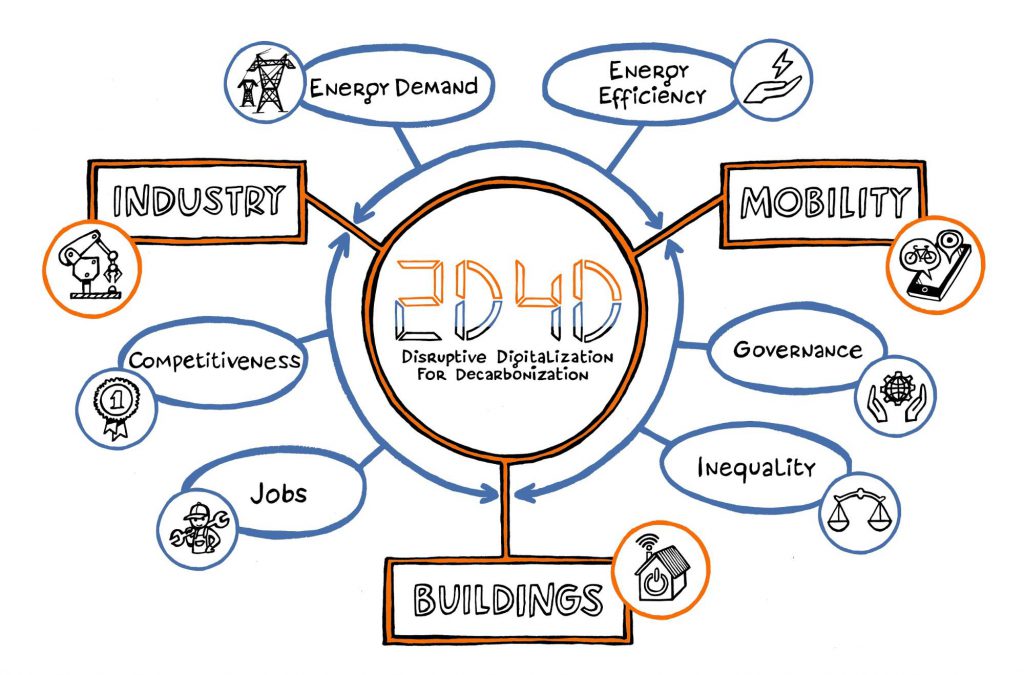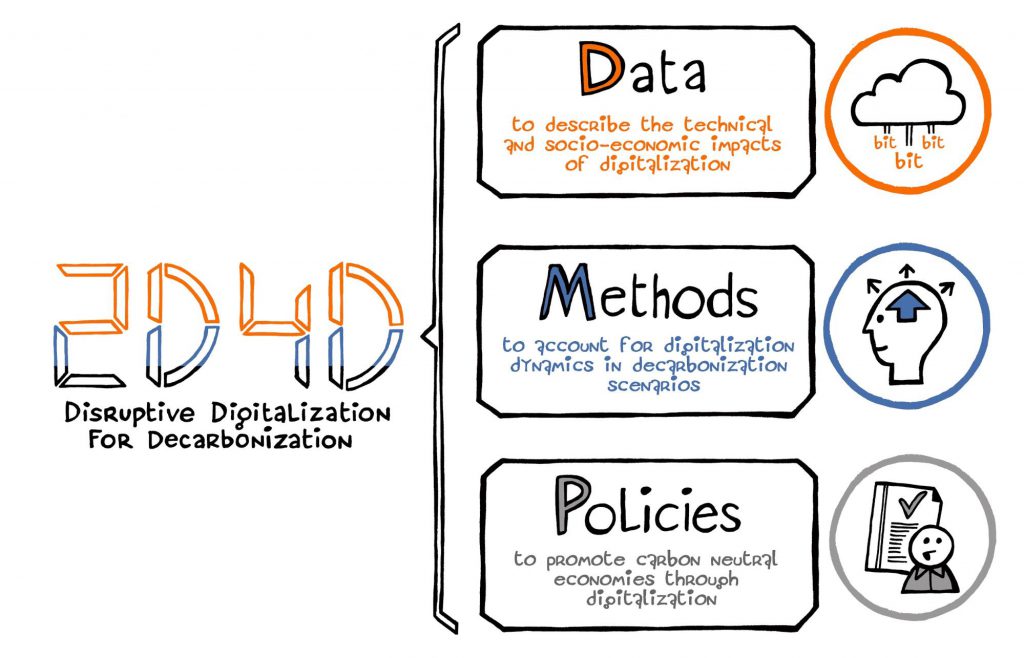Digital technologies will have disruptive socio-economic implications for decarbonization narratives and pathways because the digital revolution is deeply affecting all major energy-demand sectors. The key role of digitalization as a way to adapt to a major challenge was painfully visible in the COVID-19 pandemic, alongside the importance of governing digitalization and closing the digital divide.
Digital technologies have reshaped the mobility landscape, and will continue to do so. Thanks to web platforms and cell phones, tech-savvy users in several countries can move within and across urban areas thanks to shared fleets of bikes, scooters, and cars, or thanks to pick-up services. Digital technologies allow us to integrate public transport with private mobility options, and to compare routes in terms of costs and travel time. This transformation will continue at a fast pace – e.g. self-driving vehicles
Home environments are increasingly being filled with smart appliances. Digital technologies for integrated energy demand management, coupled with Artificial Intelligence, will automatically adjust the use of energy according to actual user’s needs as well as overall energy demand. Digital technologies will allow better health monitoring within the household, and assist elderly in independent living.
Digital technologies and automation, including robotics and artificial intelligence, are fuelling the Industry 4.0 revolution. This transformation will have to be governed so that it can increase productivity and efficiency, but also benefit consumers and workers

In the same time frame, the European Union aims to be well ahead on the road towards 2050 climate neutrality. Yet, current mitigation policies, which are disjoint from consideration about the impacts of digitalization on energy use and all other socio-economic outcomes, will likely be inefficient and/or ineffective in a deeply digitalized world.
At present, whether the digital revolution will be an enabler or a barrier for decarbonization is a matter of debate. Forecasts suggest that disruptive change will happen fast, and experts recognize this transition will create several challenges. Digitalization will impact decarbonization through several channels.
While digital technologies increase energy demand because they consume large amounts of energy, they also contribute to (energy) efficiency in economic and human systems through material input savings and increased coordination. Furthermore, the digital transformation will affect competitiveness and trade, jobs and employment. Digital technologies have profound distributional implications, arising, among other things, from the presence of a wide digital divide. Overall, the digital revolution raises governance concerns.
Unveiling the link between digitalization and decarbonization is crucially important for industry, transportation and buildings. These three sectors face the biggest mitigation challenges. In 2014, they were responsible for 26, 25 and 33 percent of the European final energy consumption, respectively . Globally, these sectors are crucial contributors to GHG emissions; they also face important barriers to decarbonization.
The COVID-19 pandemic has increased the need for such evidence and understanding: climate challenges are not diminished. Yet, to overcome the pandemic we have the unique opportunity to design recovery packages and strategies which embed climate sustainability at their core. This is a change we should not (and cannot) miss.

With this in mind, over the next five years 2D4D aims at carrying out a comprehensive, systematic, large-scale assessment of the macro-economic implications emerging from a joint consideration of digitalization and decarbonization needs and pathways. This includes the disruptive technical and socio-economic effects of digitalization in different sectors of the economy, the resulting impact on energy and associated carbon emissions, economic growth, competitiveness and labour market impacts, and social development. To inform the design and implementation of “no-regret” decarbonization policies and portfolios, the 2D4D research team will rely on a diverse and complementary set of approaches.
This understanding will be crucial to ensure that digitalization and decarbonization are mutually enhancing in the achievement of climate targets and sustainable development goals.
